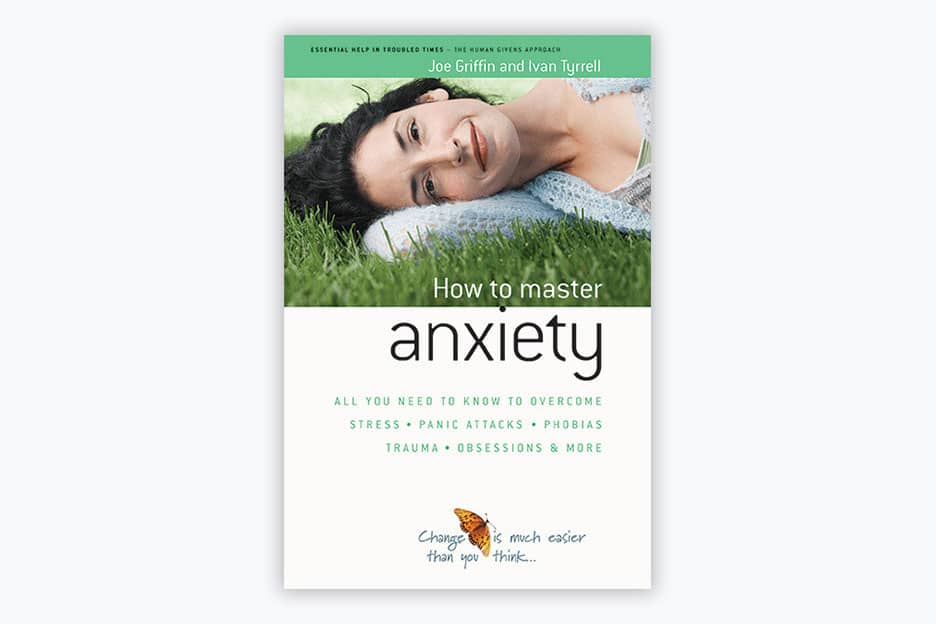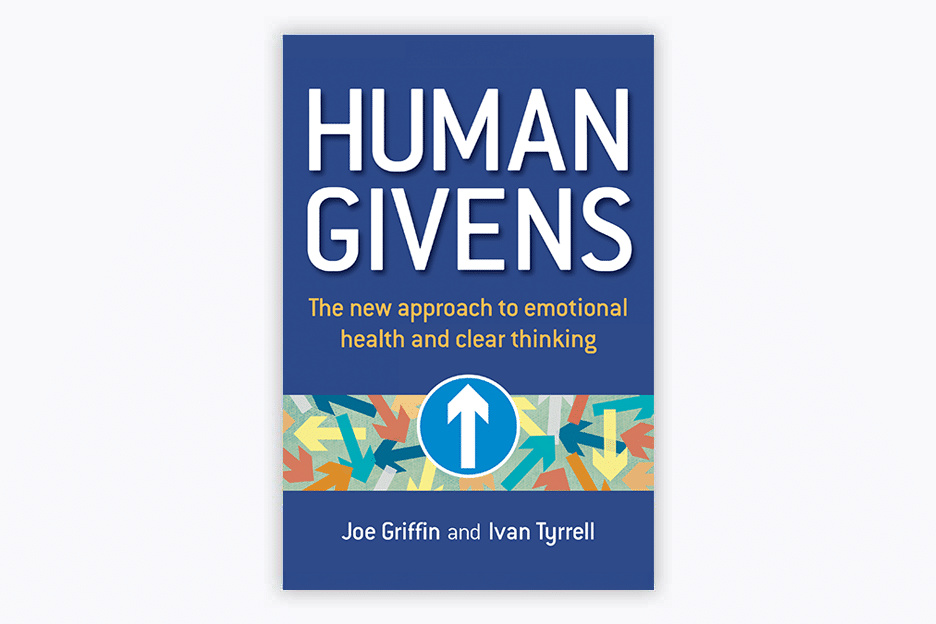Learning and anxiety

Joanna Baker
– with expert Joanna Baker
Joanna Baker is an HG tutor and a highly experienced psychotherapist. She runs her own private practice and was the coordinator of the nationally recognised Psychoeducation Team at the University of Derby for many years. Jo believes passionately that the job of any good university is not just to champion academic success – but also to nurture personal development and teach students the life skills they need to thrive. In the podcast she recorded with us, she explains how she works to embed vital knowledge and good mental health practices at all levels of university life.
Even before the global pandemic turned university students’ lives upside-down, student mental health was a real and deepening issue. Jo was already seeing increasing numbers of students affected by anxiety, in particular. Between 25 and 30% of students experience exam anxiety, Jo says, but there are many other triggers too; performing arts students can be crippled by performance anxiety, for example, and students starting – or imminently finishing – university or moving into the next year can often experience transition anxiety.
The distress anxiety causes is very real ..."
Anxiety is a natural response to the threat of danger, Jo says. It can take many forms, but often involves ongoing negative thoughts about the future. For students, the fear of failure is very common. They may constantly be conjuring up negative outcomes and although the scenarios they are creating are likely to be imaginary, the brain finds it difficult to distinguish the difference, and the distress experienced is very real.
In the short-term, anxiety can cause a student to experience symptoms which many of us will be familiar with, like shortness of breath, a racing heart, knots in the stomach and clammy palms. It is less well-known that it can also affect the senses, making it more difficult to hear or to see well, and it can seriously impact students’ ability to concentrate, to recall information or to think clearly, affecting their learning and academic performance. In the long-term, sustained heightened states of emotional arousal can lead to physical illness, depression, self-harm, suicidal ideation and even psychosis.
The reason students may drop out is because they lack coping skills not because they lack academic ability.”
Students who are struggling with anxiety are understandably more likely to drop out of their course, Jo says. But a lack of academic ability is unlikely to be the true cause of students’ stress and anxiety. The real issue, Jo says, is that life to this point has not properly equipped students with essential coping tools. The combination of an education system that encourages teachers to prepare students for exam success, instead of developing key learning skills like the ability to conduct independent research or to problem-solve, together with well-meaning parents who try to remove obstacles from their children’s paths, means that students have not learnt the essential life skills they need to navigate their way through university life.
“Our education system seems to be placing more and more emphasis on exam success, rather than on the experience of learning itself,” Jo says. “Students are being taught that exams and grades are almost a life and death situation, with teachers also in a high state of anxiety which will inevitably be transferred to the students themselves.”
In other cases, it may be the student’s key motivating factor that is causing them problems –understanding why they are studying in the first place and what they hope to achieve is fundamental to how they learn and what impact their learning will have on their overall wellbeing.
Our work is geared towards empowering students to help themselves …”
As well as offering 1:1 counselling, Jo works closely alongside university staff on a variety of initiatives that make a vital difference.
Jo and her team deliver carefully designed talks and workshops – on wellbeing and academic achievement, managing stress, improving presentation performance, improving exam performance, digital wellbeing and team dynamics, for example. She advocates making these workshops “on-programme” – a mandatory element of a student’s curriculum. “We know that if a student sees it as part of their course, they see the relevance of it to them … it’s important to us that students see their time at university as being for developing as a whole human,” she says. Jo works closely with academic staff to tailor modules for particular cohorts, so together they can ensure they help students to overcome common triggers of anxiety within their given course or specialism and that they use appropriate language and metaphors that resonate with the students.
Psychoeducation is a fundamental element of the HG approach. Helping people to understand what is happening within the brain and how this affects their emotions and behaviour when they become anxious, for example, has both a calming and an empowering effect. Jo explains, for instance, how our brains have evolved over time and how the “fight-flight-freeze” mechanism works. She shares the APET model and teaches students how the amygdala (“the security officer”), the anterior cingulate gyrus (“the secretary”), the hippocampus (“the personal memory store”) and the prefrontal cortex (“the boss”) work together, showing them how the perceived threat posed by an exam or a presentation might trigger an instinctive response. She demonstrates how this, in turn, might cause the senses to be impaired (explaining the impact on sight and hearing mentioned earlier) and lead to emotional hijacking, inhibiting clear and rational thought. She explains how, in the case of real and immediate danger, this is very helpful, but when faced with a presentation or an exam, the catastrophic, narrow, black-and-white thinking that ensues can be debilitating. “This knowledge is very well received by students and the wider academic community too,” Jo says. “They respond well to the scientifically sound, evidence-based approach and immediately see its relevance and value to them.”
Jo goes on to teach students practical relaxation techniques, such as 7-11 breathing, equipping them with an effective method of lowering their emotional arousal anywhere at any time. She shares with them the “human givens” model – showing how important it is that both our physical needs, such as for sleep, nutrition and exercise, and our emotional needs, like our needs for social intimacy, security, privacy and a sense of achievement, are met healthily and in balance.
A really important thing is how we learn … it’s the way in which students engage with their learning that has a huge bearing on their wellbeing …”
Drawing upon research from Finland¹, Jo encourages students to explore what is motivating them and why they are studying – essentially, what their meaning and purpose is. The research – and Jo’s own experience – have demonstrated that the way in which a student engages with their learning has a huge impact on their wellbeing. Students who are studying solely to achieve a particular qualification or grade at the end of their course are more likely to be surface learning, they will be more stressed and are more likely to burn out. Students driven by a love for their subject, which they genuinely want to further their knowledge and understanding of, however, will be engaging in a deep learning experience, which will significantly increase their sense of wellbeing.
Academics are the front-line – they’re the first port of call if a student is in distress … but they don’t feel well-equipped to deal with that …"
Some recent research conducted by Jo’s colleague, Gareth Hughes, highlights another important gap in mental health support for students². It shows that students are most likely to approach a member of the academic staff if they are distressed or anxious because they already have a relationship with them. But academic staff often lack the training or support to know how to help and are likely to feel overwhelmed.
Jo has used her HG expertise to help develop and deliver clear, practical – and role specific – training programmes for all members of university communities, including library staff, cleaners, careers advisers, halls of residence staff and the senior management team. Here she provides accessible, relevant information and teaches them what they, in their roles, can do – safely and legally – to help, how to gently start conversations if they are concerned and how and when to sign-post students to other services.
What’s also really important is modelling behaviour and encouraging academics to be mindful of their own self-care and wellbeing”
In addition, Jo encourages academic staff to take care of themselves. “Sending emails to students at 2am and turning up looking dishevelled and ratty, would not be sending out the right message,” she points out.
Jo would encourage all prospective students to research a university’s approach to, and provision of, wellbeing and mental health support. “Everybody’s going to need some support of some form at some point,” she says, and this is just as important as the academic programmes a university offers.
References
- T. Hailikari, V. Virtanen, M. Vesalainen, L. Postareff (2021). Student perspectives on how different elements of constructive alignment support active learning (Sage Publishing).
- Gareth Hughes, Mehr Panjwani, Priya Tulcidas and Dr Nicola Byrom (2018). Student Mental Health: The Role and Experiences of Academics (University of Derby, King’s College London, Student Minds).
Further help and information
- Jo Baker has spent hundreds of hours in the classroom teaching and training students and staff. You can find out more about the services Jo and her team offer to the wider Higher Education sector here.
- Jo Baker and Gareth Hughes teach Part 2 of the Human Givens Diploma – you can find out more the HG Diploma here.
- Check out Gareth’s other webinars about student mental health: How to support teenagers through the stress of starting university life, How to reduce anxiety in students and young people, Learning and wellbeing during the Coronavirus pandemic
- Learn more about 7-11 breathing
- You might also like to read the University Mental Health Charter
Listen to the Podcast
Learning and Anxiety
Anxiety is a huge problem for many young people today, affecting their mental health and ability to learn effectively.
Joanna Baker is an HG tutor and a highly experienced psychotherapist. She runs her own private practice and was the coordinator of the nationally recognised Psychoeducation Team at the University of Derby for many years. Jo believes passionately that the job of any good university is not just to champion academic success – but also to nurture personal development and teach students the life skills they need to thrive. In the podcast she recorded with us, she explains how she works to embed vital knowledge and good mental health practices at all levels of university life.
‘Ask The Expert’ podcast series
Listen to the full series and more on your favourite podcast player! Available on Apple Podcasts, Spotify and Soundcloud.






